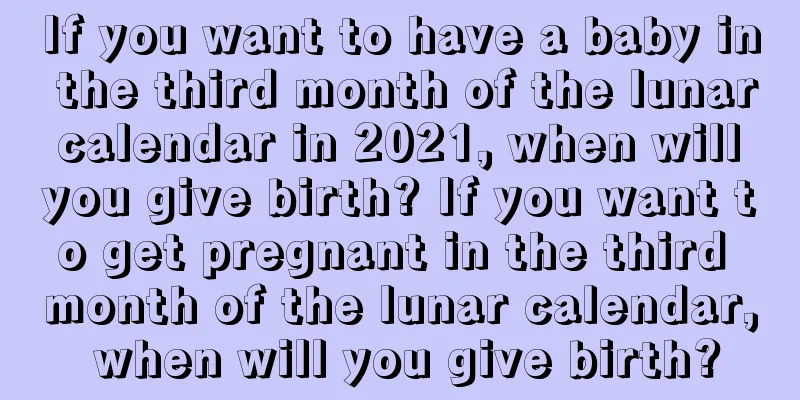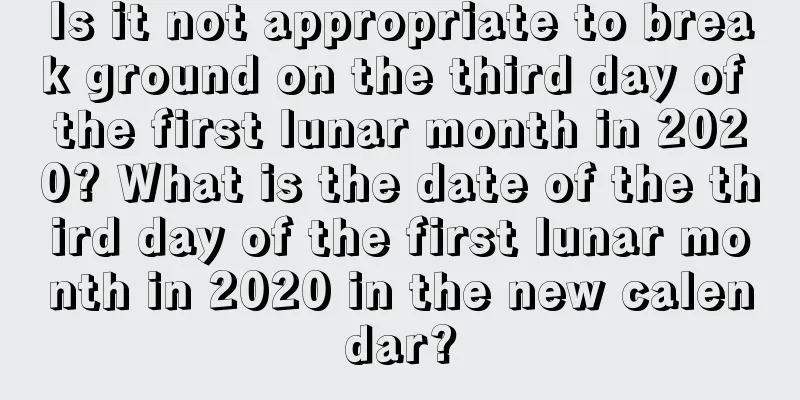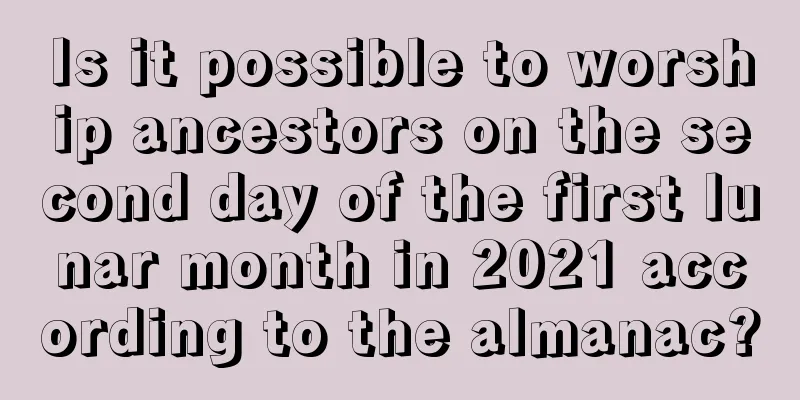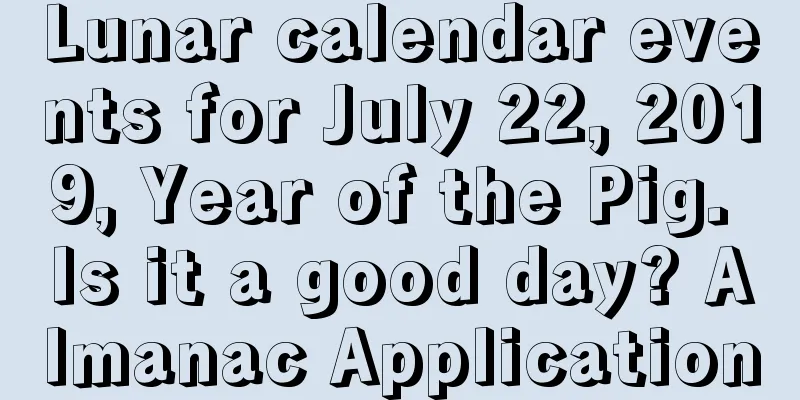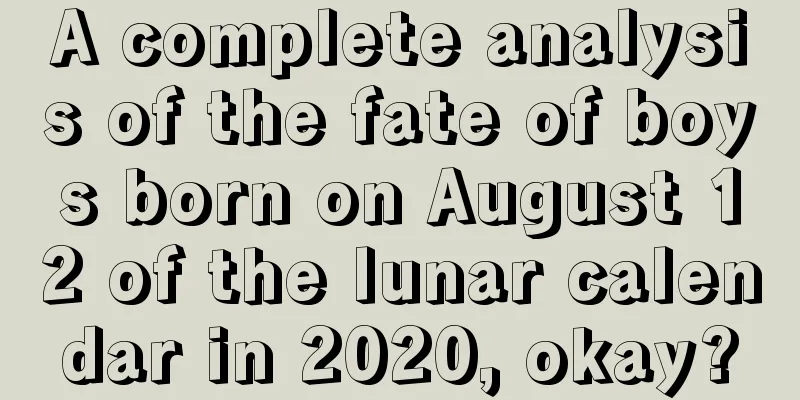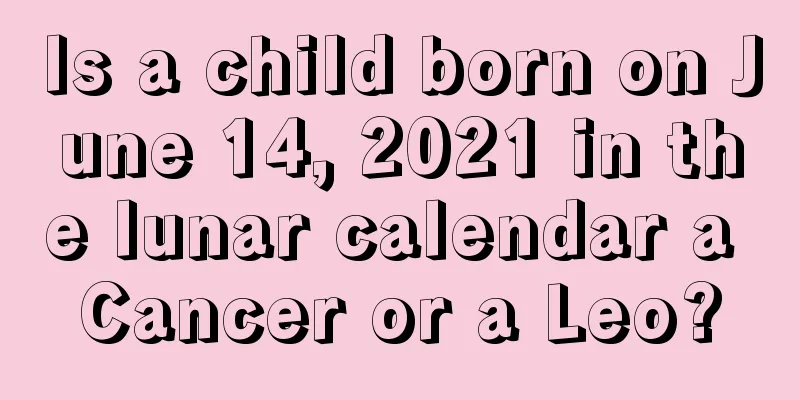What is the origin of the Chinese New Year festival? When is the Chinese New Year in 2018?
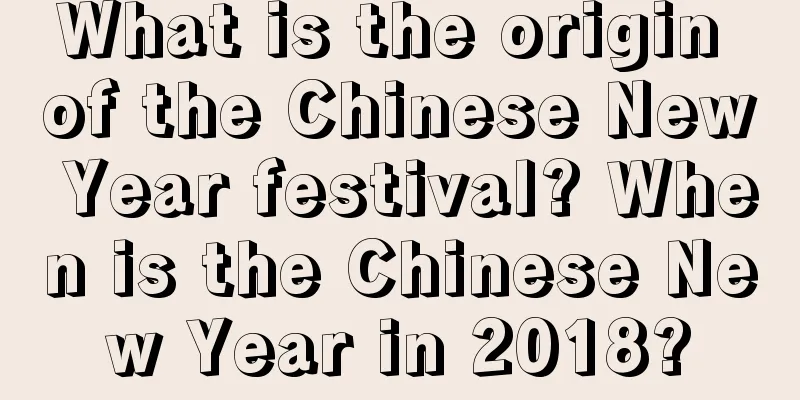
Introduction: Time passes quietly, and in the blink of an eye, the 2018 Spring Festival is getting closer and closer. So what is the origin of the Chinese New Year festival? When is the Chinese New Year in 2018? Follow the editor to learn more about it! For more details about the 2018 Spring Festival, please visit Fortune Teller.com for consultation.What is the origin of the Chinese New Year festival?The first day of the first lunar month is the Spring Festival, also known as the lunar (lunar) year, commonly known as "New Year". This is one of the oldest, most grand and lively traditional festivals in Chinese folk history. It is also a common festival for more than a dozen ethnic minorities including the Han, Manchu, Mongolian, Yao, Zhuang, Bai, Gaoshan, Hezhe, Hani, Daur, Dong and Li. The Han Chinese celebrate the Spring Festival for a long time, usually starting from the eighth day of the twelfth lunar month and ending on the fifteenth day of the first lunar month, the Lantern Festival.The Spring Festival has a history of about three to four thousand years. It originally referred to the Lunar New Year's Day, which people usually call the Chinese New Year. It originated from the sacrificial activities to gods and ancestors at the beginning and end of the year during the Shang Dynasty. There are also many legends about the year. In ancient times, the Spring Festival was called "New Year's Day", "New Year", "Zhengdan", "The Beginning of the Year", "Sanyuan", etc. After the Revolution of 1911, the Nanjing Provisional Government stipulated that the lunar calendar be used by the public and the Gregorian calendar be used in government agencies, factories, schools and groups in order to adapt to the farming season and facilitate statistics. The first day of the Gregorian calendar was called "New Year's Day" and the first day of the first lunar month was called "Spring Festival". According to research, Spring Festival became its official name after the Xinhai Revolution. During the Wuchang Uprising in October 1911, on December 31, the revolutionary Hubei Military Government issued the "Announcement of the Ministry of the Interior on the Adoption of the Gregorian Calendar in the Republic of China", which clearly referred to the (Lunar Calendar) New Year as the "Spring Festival". On September 27, 1949, New China was formally founded. At the first plenary session of the Chinese People's Political Consultative Conference, the use of the world-common Gregorian calendar was adopted, and the first day of January in the Gregorian calendar was designated as New Year's Day, commonly known as the solar calendar year. The first day of the first lunar month is usually around the beginning of spring, so the first day of the first lunar month is designated as "Spring Festival", commonly known as the lunar calendar year. It was further clarified that the first day of the first lunar month is called "Spring Festival", and the name "Spring Festival" was formally included in the Chinese festival code and has been truly popular to this day. The long history has made the content of New Year customs extremely rich and colorful. Among them, the superstitious contents of worshiping heaven and offering sacrifices to gods have gradually been eliminated, while those contents full of life interest, such as pasting Spring Festival couplets, pasting New Year pictures, pasting the word "Fu", cutting window flowers, steaming rice cakes, making dumplings, etc. have been passed down. When is the Chinese New Year in 2018?The 2018 Spring Festival is on February 16, the first day of the first lunar month, which is Friday. <br /> The Spring Festival refers to the traditional Lunar New Year in the Chinese cultural circle, commonly known as the "New Year Festival". The traditional names are New Year, Big Year, and New Year, but they are also called "Du Sui", "Celebrating the New Year", and "Guo Nian" verbally. The Chinese have celebrated the Spring Festival for more than 4,000 years. In modern times, people set the Spring Festival on the first day of the first lunar month, but the New Year is generally not considered to be over until at least the fifteenth day of the first lunar month (the Lantern Festival). Among the folks, the traditional Spring Festival refers to the period from the La Festival in the twelfth lunar month or the Kitchen God Festival on the twenty-third or twenty-fourth day of the twelfth lunar month to the nineteenth day of the first lunar month.Summary: The above content is about [What is the origin of the Chinese Spring Festival? When is the Chinese New Year in 2018? 】Problem analysis, hope it can help everyone! |
<<: When is the Chinese New Year in 2018? What are the taboos during the Spring Festival?
>>: When is the Spring Festival and what is the saying?
Recommend
Is the 16th day of the sixth lunar month in 2019 a suitable day for marriage?
In the minds of Chinese people, marriage is a ver...
Is the fourth day of the eleventh lunar month in 2018 a good day? Is it an auspicious day?
When people do something important, they often cho...
What are the taboos and things to pay attention to when repairing graves during the Qingming Festival?
Qingming Festival, also known as the outing festiv...
How about the 29th day of the 11th lunar month in 2017? Is it a good time to offer sacrifices?
Introduction: Sacrifice has a long history in our ...
What are the customs and practices of the Grain Rain solar term? What should we do during the Grain Rain in 2019?
Everyone must be familiar with the Grain Rain sola...
Is the second day of the eighth lunar month in 2019 suitable for relocating graves? Is today an auspicious day for relocating graves?
Introduction: Generally, an auspicious day must be...
How about going out on the 20th day of the 11th lunar month in 2020? What are the must-have items for a long trip?
How about going out on the 20th day of the 11th lu...
Is the 19th day of the first lunar month in 2022, the Rain Water Day, an auspicious day? Can I worship my ancestors and visit their graves?
The first month of the lunar calendar is the first...
What are the nicknames for Mid-Autumn Festival? What does the Mid-Autumn Festival mooncake-drawing game mean?
The fifteenth day of the eighth lunar month every ...
What is the content of the lunar calendar for the Spring Equinox in 2018? Is it a good time to bury the deceased on the Spring Equinox in 2018?
Introduction: In a person’s life, not only birth i...
Can we worship our ancestors on the tenth day of the tenth month of the lunar calendar in 2022? What are the auspicious times?
Sacrifice is a unique belief activity of human bei...
Is the fourth day of the sixth lunar month in 2020 an auspicious day for repairing graves? What will the hexagram show on July 24?
Introduction: Generally, it is necessary to choose...
Is it a good time to repair a grave on November 18th of the lunar calendar in 2019? Is today an auspicious day for repairing a grave?
Introduction: Generally, an auspicious day must be...
Is it a good idea to get married on the ninth day of the seventh lunar month in 2017? Can I get engaged?
1. What day is the ninth day of the seventh lunar...
Is February 25th of the lunar calendar 2018 a good day? Is it suitable for traveling far away?
Introduction: In our country’s traditional culture...
